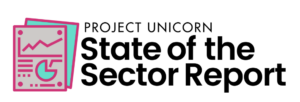EdTech’s Role in Ensuring Data Privacy

By Neil Campbell
Data is essential to an effective educational system. It supports high-quality teaching, drives personalized learning for students and underpins school accountability.
Yet parents, privacy advocates, educators, administrators and policy makers may not be equally comfortable with the policies and protections in place to protect student data. It is critical to find the right balance between the benefits and challenges associated with student data use, or we risk putting in place policies that will hinder the development and use of valuable innovative technology in our nation’s schools.
This has never been more obvious than in the past three years. During this time, lawmakers in almost every state have introduced bills addressing the need for student data privacy protections.
To address these challenges, the Foundation for Excellence in Education (ExcelinEd) has examined the legal and regulatory context for student data privacy, particularly on the important roles states play. We have also offered support to state policymakers and advocates working to modernize policies and respond to the concerns of parents by advancing comprehensive, balanced student data privacy protections.
Furthering our work in the states, ExcelinEd recently released Building a Trusted Environment for Education Technology Products, the third paper in a research series on this topic. The paper focuses on the important role service providers, including education and technology companies, play in building a trusted environment for learning.
This paper—complete with our research and interviews with privacy experts, technology executives, investors and advocates—highlights opportunities for companies to increase their engagement on this issue. Key recommendations include:
- Embrace the principles of privacy by design, especially in new product development.
- Assess the use cases and need for student data to minimize what is collected and retained.
- Provide users with appropriate tools to manage data collected about students, including tools that involve parents where applicable.
- Consider support of third-party privacy initiatives, such as signing the Student Data Privacy Pledge.
The potential of innovative technology to support educators and personalize learning for students is staggering. Yet a new generation of valuable education tools and services is at risk unless we find a balance that can advance innovative learning opportunities while safeguarding student privacy.
This must be a group effort. The stakes are simply too high for anyone to remain seated on the sidelines.
For more, see:
Neil Campbell is the Policy Director for Personalized and Blended Learning for the Foundation for Excellence in Education. Follow Neil on Twitter @n_m_campbell.
Stay in-the-know with all things EdTech and innovations in learning by signing up to receive the weekly Smart Update. This post includes mentions of a Getting Smart partner. For a full list of partners, affiliate organizations and all other disclosures, please see our Partner page.







0 Comments
Leave a Comment
Your email address will not be published. All fields are required.